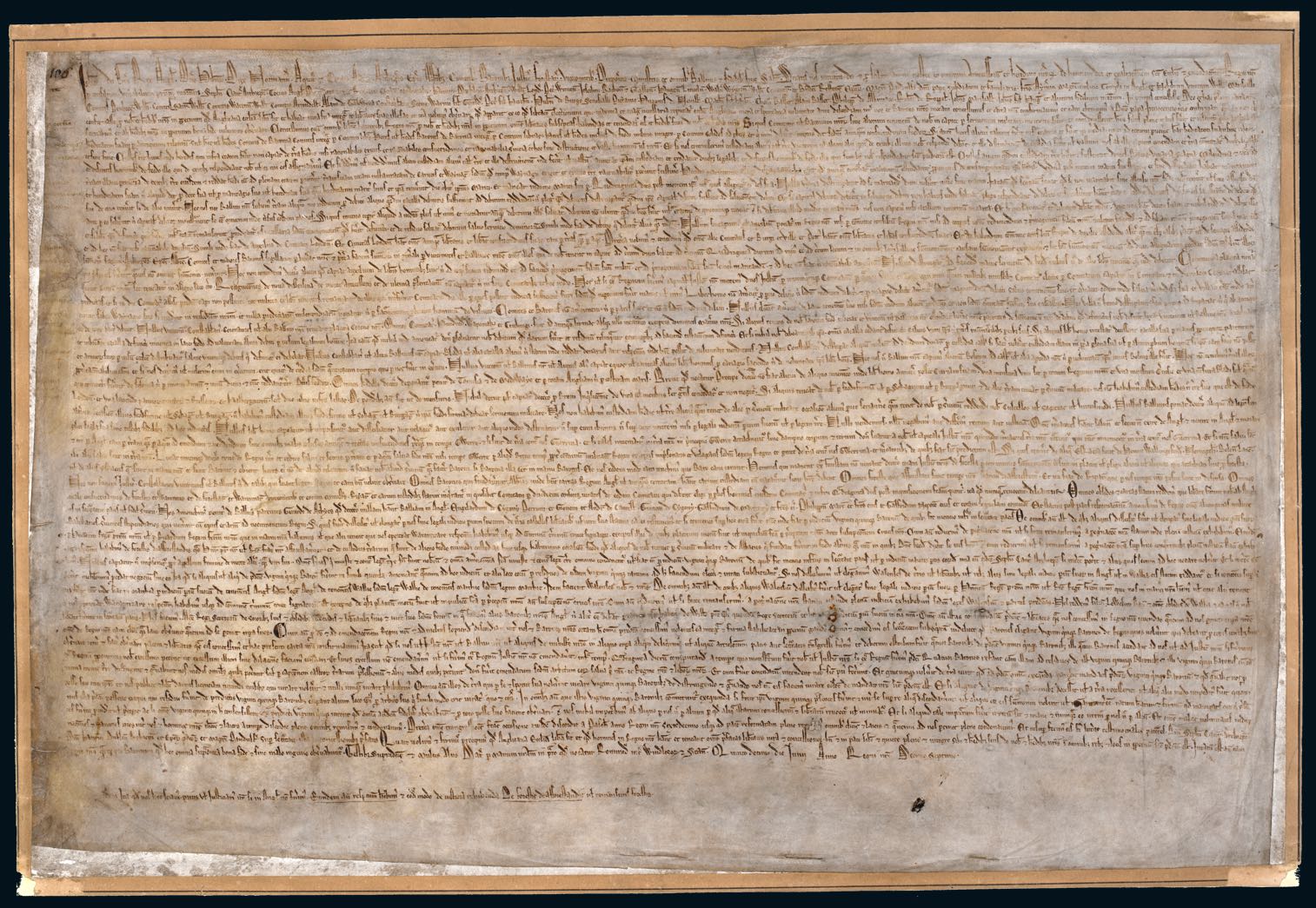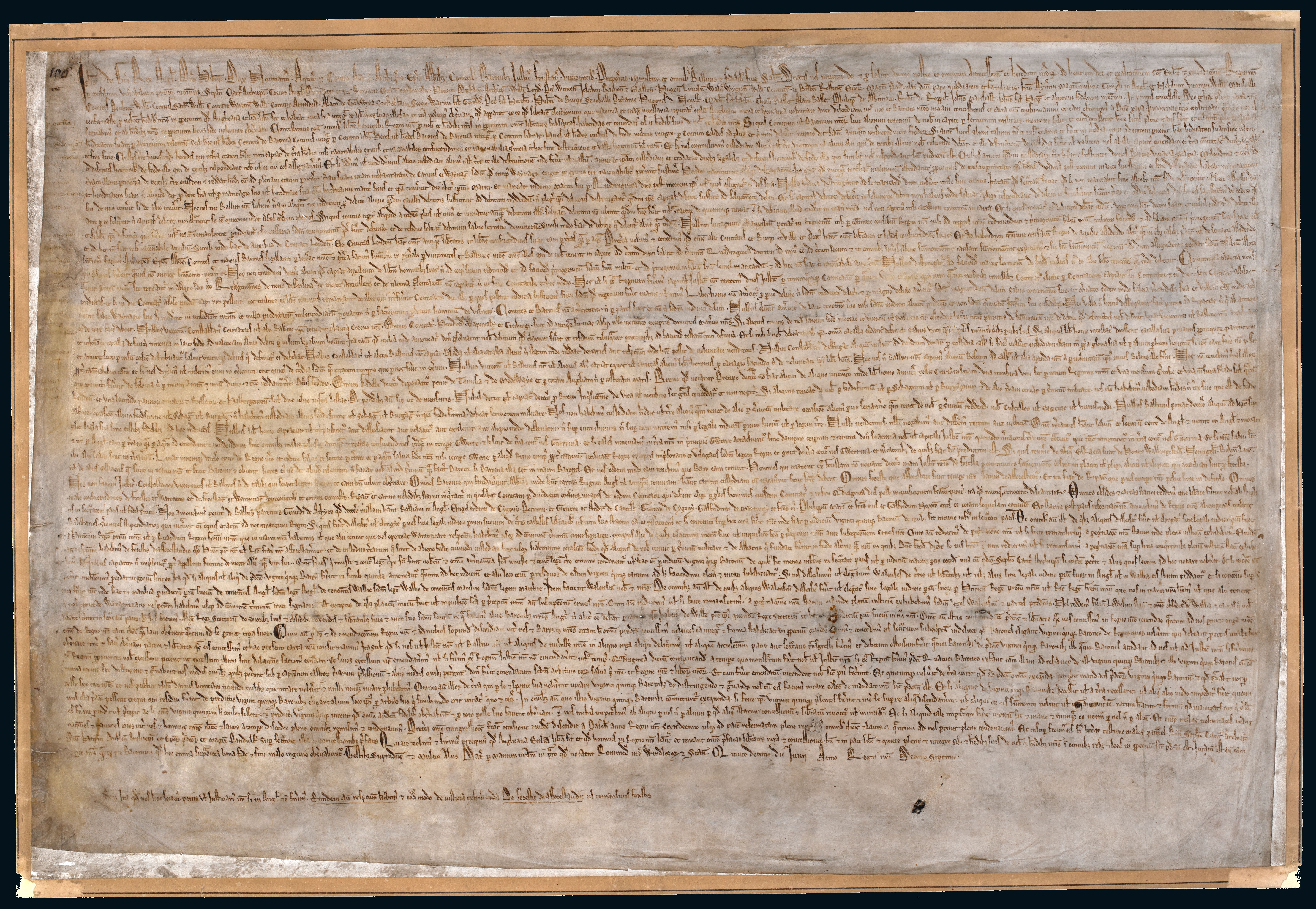
Liber homo non amercietur pro parvo delicto nisi secundum modum delicti; et pro magno delicto amercietur secundum magnitudinem delicti salvo contenemento suo; et mercator eodem modo salva mercandisa sua; et villanus eodem modo amercietur salvo waynagio suo si inciderint in misericordiam nostram; et nulla predictarum misericordiarum ponatur nisi per sacramentum proborum hominum de visneto.
For a trivial offence, a free man shall be fined only in proportion to the degree of his offence, and for a serious offence correspondingly, but not so heavily as to deprive him of his livelihood. In the same way, a merchant shall be spared his merchandise, and a villein the implements of his husbandry, if they fall upon the mercy of a royal court. None of these fines shall be imposed except by the assessment on oath of reputable men of the neighbourhood.
